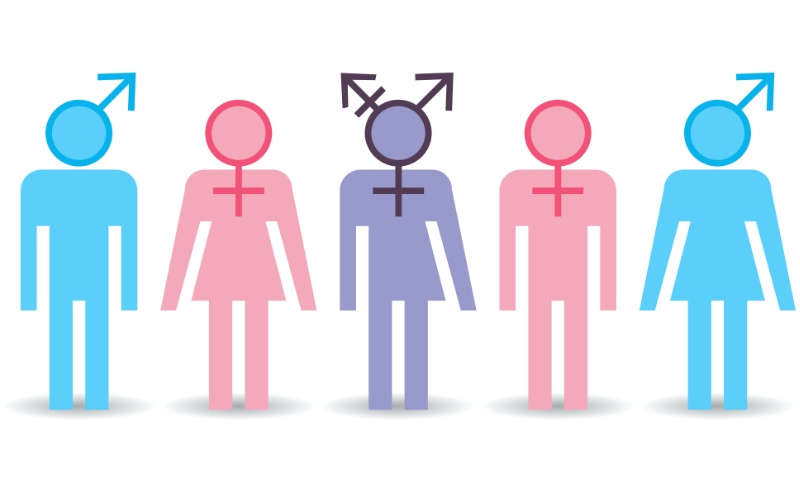Gender dysphoria is essentially where the mind and body parts don’t match. It has been described as a homesickness in your own body that never goes away. Technically, it is the condition of feeling one’s emotional and psychological identity as male or female to be opposite to one’s biological sex. While gender dysphoria has been around for centuries, only in recent years have transgender stories emerged.
The History and Future of Being Transgender
The most famous researcher on the subject of transsexuality was Harry Benjamin. He said he never saw a person “cured” of transsexuality by therapy.
Proof is coming. Postmortem brain studies, scans and gene studies all point to a physical basis for being transgender.
Claire’s Early Realization and Struggle
Claire (then Bill) was aware she was different by age 5 and had dreams and prayers of being a girl by age 10. She learned it was possible to transition in her teen years, but she waited until she was 59 to transition. She waited because she was fearful of family and public acceptance. There was a lack of trans identity and community. It was expensive with no insurance coverage and there was medical gatekeeping/discouragement.
Claire put a block in her mind that her parents, who were married in 1951, could not have handled it. But she thinks now that they would have loved and embraced her.
The Beginning of a New Beginning
Claire had been married for 11 years and when her wife left in the fall of 2016, she began deep soul searching. She started listening to that little voice that had never gone away. She reached out to trans friends and therapists in the fall of 2017.
In December 2017 she had her first therapy session. Her therapist said, “I think you know what you want to do and what you need to do, and I see my role as providing emotional support and resources.” A thousand-pound weight was lifted, and she started toward the path to make it happen.
Taking Steps Towards Becoming Claire
Claire began Hormone Replacement Therapy in February 2018. She first took pills and now takes shots as she continues the process and she will need to take these therapies for her lifetime. She wanted to come out in June 2018 officially and she contacted the local media since she is a public official. The Oregonian did a huge story on “Becoming Claire”.
Shining a Light for Others
Claire’s story brought her lots of congratulations and she influenced many people during her coming out. The most impactful was a young lady named Ella who was given more confidence in her own journey from boy to girl. Claire’s story really impacted Ella and gave her hope.
Getting the Support She Needed
Claire was able to meet Caitlyn Jenner shortly after transitioning. She applauds Caitlyn Jenner for being public because she did it with the whole world watching.
Claire has a hard time processing being called brave. This was just what she had to do for true peace of mind. She’s been blessed that many in her own family and community have supported her or at least have not tried to hurt her.
Other political trans people that influenced Claire include the former mayor of Silverton, Stu Rasmussen and state legislator Danica Roem.
Sharing Transgender Stories: Connecting with a Local Community and Support Groups
The last few years have been challenging and also progressive nationally, particularly as it relates to politics. Regardless, life is traumatic for transgender people and there is much progress to make. Claire recommends that anyone going through gender issues plug in to local community resources and support groups. A local transgender support group in Eugene worth checking out is TransPonder.
Embracing Her True Identity
Claire chose her name out of a comic book when she was 10 years old. In this particular comic, Superman had an encounter with an alien woman named Claire who taught him a lesson in this comic.
Claire feels blessed to wake up every morning to face the day as herself and to be largely free of negativity.
How Can You Support a Transgender Person?
- Do what you would for anyone else for that person.
- Stand up for them when they are not there, and others are saying negative or cruel things.
- Help them go on and live their lives without constantly being asked to talk about themselves all the time.
For more inspiration and insight about what’s going on in our community, check out our other blogs.

